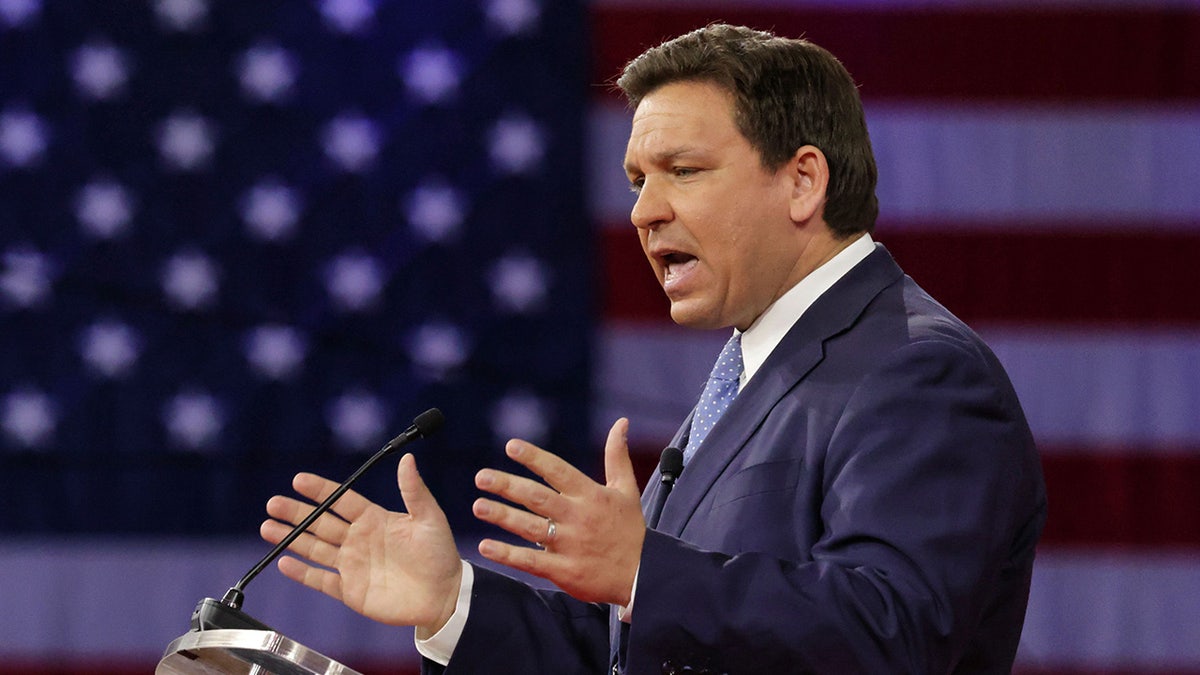
A Washington Post column claimed Wednesday that the implementation of laws prohibiting young children from being instructed on sexual orientation and gender identity in the classroom is similar to Black people being denied gun permits, and insinuated that legislators are intentionally writing these bills for "homophobes" to discriminate against subsets of the population.
In the piece "There’s a reason the ‘don’t say gay’ bills don’t say what they mean," by Monica Hesse, the columnist notably omitted the fact that the section on classroom instruction on sexual orientation and gender identity in Florida’s Parental Rights Law only applies to grades K-3, with higher grades following state standards.
Creating her own new terminology, Hesse said that the Florida bill and its red state "copycats" were a "gaswhistle" (a mash-up dog whistle and gaslight) that "anyone can smell if they’re being honest."
WASHINGTON POST COLUMNIST SAYS TIM SCOTT ‘DISOWNED’ KETANJI BROWN JACKSON

Florida Gov. Ron DeSantis delivers remarks at the 2022 CPAC conference in Orlando on Feb. 24, 2022. (Joe Burbank/Orlando Sentinel/Tribune News Service via Getty Images)
The strategy behind this "gaswhistle," according to Hesse, is this: "Pass homophobic and transphobic bills cloaked in neutral language, then pretend liberals are crazy for calling the bills homophobic and transphobic."
Hesse conceded that the language of these laws seem as though they will be "equally applied" to all discussions of gender and sexuality, but said advocates of these laws are "not idiots" and know that this type of legislation is "likely to be applied only to a subset of people."
At multiple points in the column Hesse also conflated the idea of classroom discussion and classroom instruction. The Florida law only bans instruction of certain topics for young children. It does not ban any type of classroom discussion.
Later in the piece, The Post columnist made a comparison between the claim that Black people have historically been denied gun permits and the implementation of these new school instruction laws.
ALABAMA JOINS FLORIDA IN PROHIBITING CERTAIN SCHOOL TEACHERS FROM DISCUSSING GENDER, SEXUAL MATTERS

Members and supporters of the LGBTQ community attend the "Say Gay Anyway" rally in Miami Beach, Florida on March 13, 2022. (Chandan Khanna/AFP via Getty Images))
Referencing a Twitter thread by Princeton historian Kevin Kruse, Hesse said that the issue, historically, with Black people acquiring guns wasn’t the law, but the racism of sheriffs and city employees who determined which locals would receive the permits.
"When racists are in charge of administering seemingly race-neutral laws, they often apply them in uneven ways that reflect racism," Kruse said. Hesse then applied this claim to the Florida law and other potential and current legislation throughout the country.
"When homophobes are the ones using seemingly neutral laws, the actual effects of those laws will be homophobic," Hesse wrote.
CLICK HERE TO GET THE FOX NEWS APP
The columnist also asserted that advocates of these laws talk as though legislation is the only deterrent standing between their kids and a "cabal of perverts" trying to "groom them between Language Arts and recess."
"Do they think a teacher hellbent on molesting students will be stopped by a law discouraging discussions of sexual orientation?" Hesse asked towards the column's conclusion.
Florida’s law is expected to become effective July 1. Alabama’s governor signed similar legislation on April 8. Other GOP-controlled states, such as Ohio, are considering similar measures.









































